As pet owners, we want our beloved felines to be content, but since our cats can’t tell us how they’re feeling, we have to learn to interpret their behaviour. Read on for some ways you can tell if your cat is happy.
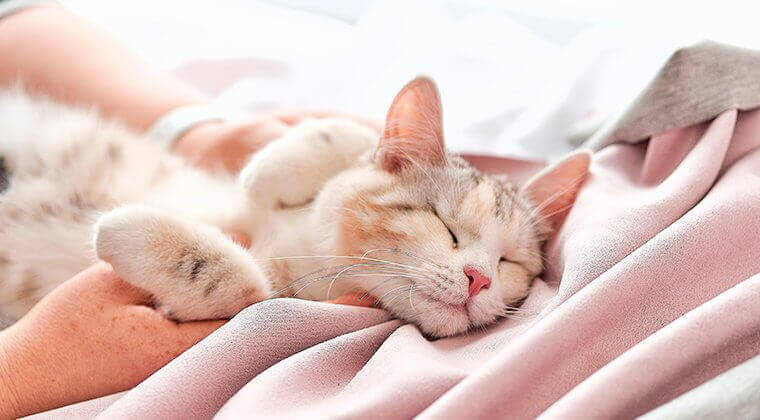
BODY LANGUAGE OF A HAPPY CAT
Every cat is unique, with individual personalities and temperaments. Some cats are more social by nature, some are frisky and playful, while others are cool and reserved. There are still a range of common cues in every cat’s body language that lets us know that he or she is happy.
Cats express their feelings physically. If you are greeted first thing in the morning or after a day at work by your cat running up to you, it’s a good bet your cat is happy.
Your cat’s tail will be straight and upright and his ears will be erect. Your cat may also rub his ears, face and body around your legs and ankles, which is both a sign of affection and a way for your cat to mark you as their property.
The way your cat rests around your home can also indicate signs of a happy cat. A happy, relaxed cat may rest on her side, with her tummy exposed. Or, you may find your kitty resting with her feet underneath her body, front paws tucked in and her eyes half closed. This tells you that your cat feels relaxed and unthreatened. A cat that is not happy will not rest or settle near you and will not get comfortable. Her body may seem rigid and tense.
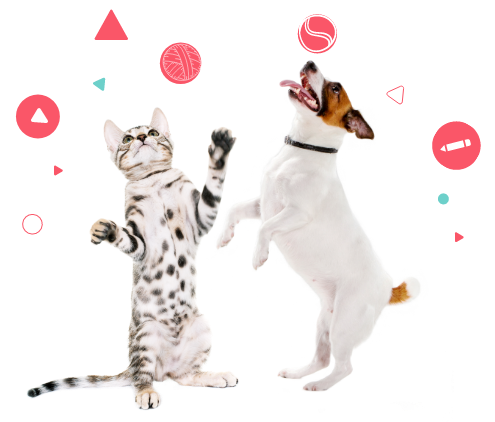
Welcome to the Pet Park
Explore the best content for your furry friend.
BEHAVIOUR OF A HAPPY CAT
We know that cats meow in order to communicate and that they purr when they are happy (although they may also purr when they are hungry or feeling unwell).
Your cat will usually make very specific sounds when he is feeling happy, which usually sounds as if your cat is chatting with you
The higher pitched your cat’s noises are, the more likely he is happy, as often the lower-pitched sounds indicate that your cat is frustrated or wants something. Overall, being vocal is generally a good sign that you have a happy kitty.
Another sign of a happy cat, is if your cat curls up on your lap and makes a little “nest.” Your kitty may doze in this position, purring away, and there is no doubt that she is very content. You may also find your cat kneading your lap with her paws, as if kneading dough. This behaviour harkens back to when your cat was a kitten, nursing from her mother. The kneading behaviour is a sign of both contentment and trust.
Playful behaviour is yet another sure sign of a happy cat. Even older cats, who may be less physically active, will still have a sense of fun and will interact with you and other household pets whom they like and trust. Your cat will show you he is happy or wants to play in several ways, such as lying on his side, tail twitching. He will happily interact with you and chase lights from a laser pen or balls of paper.
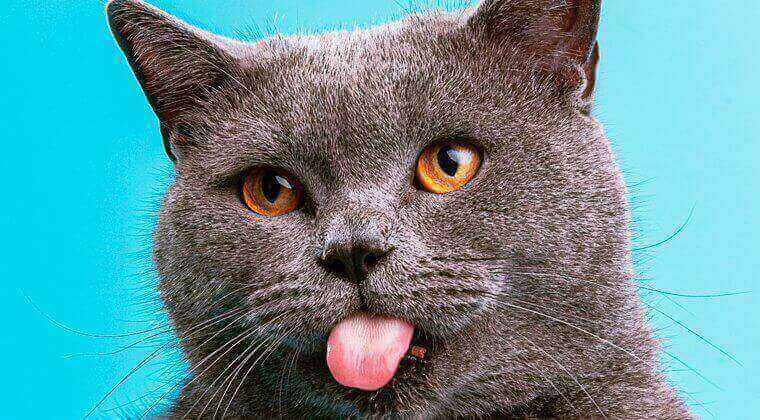
GROOMING HABITS OF A HAPPY CAT
Cats love to groom themselves and if they are happy and feeling well, they will keep themselves clean.
Sometimes, your cat may also groom other cats in the home and even you, their human.
Having a healthy appearance is a good sign of a happy cat. If a cat is unhappy or is feeling unwell, he may stop grooming and become scruffy looking. In these cases, you can tell just by the way a cat looks that something is wrong.
SLEEPING & EATING HABITS OF A HAPPY CAT
Whether the water is warm or cold, most cats react to being in water pretty negatively – as if they are in shock. And if your cat accidentally falls into a full bathtub, this can really be a frightening experience, making him or her fearful of water for the rest of his or her life.
Your cat’s body temperature also contributes to his or her discomfort. When your cat’s fur is wet, his or her body temperature will cool down rather quickly. This is because the fur and the skin both perform a protective heating function, which only operates effectively when the fur is dry.
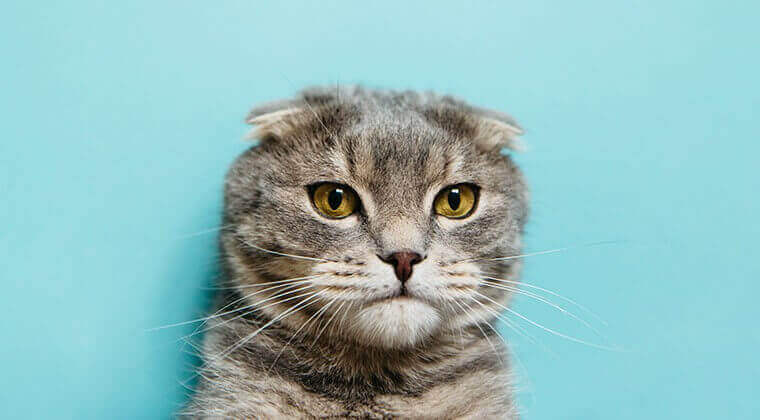
HOW CAN I MAKE SURE MY CAT STAYS HAPPY?
It is important to remember that a healthy cat is a happy cat and that in order to keep our feline friends happy, we want to meet all their basic needs, both physically and emotionally.
Keeping up visits to the veterinarian for regular examinations and vaccinations is one way to maintain your cat’s physical health, as well as being consistent with all flea and tick control and heartworm prevention protocols. Also, you will want to maintain a high quality animal protein-based diet for your cat and stick to a regular feeding schedule.
While your feline friend may seem low-maintenance, life can become monotonous for him, which can lead to some stress. To avoid stress related health issues, and keep life interesting, regularly interact with your kitty and engage in play or games. This will help to maintain your cat’s mental and emotional health.
If you do become concerned that your cat is not happy for any reason, consult your veterinarian. He or she will be able to evaluate your feline friend for any illness or health issues and can best guide you and your kitty back onto the road to happiness.
Looking for a Vet?
Your veterinarian plays a big role in your pet’s health. Input your location information and get a list of veterinarians near you.
Find A Vet Near MeSources:
https://www.battersea.org.uk/pet-advice/cat-advice/my-cat-happy
https://pets.webmd.com/cats/features/keeping-indoor-cat-happy


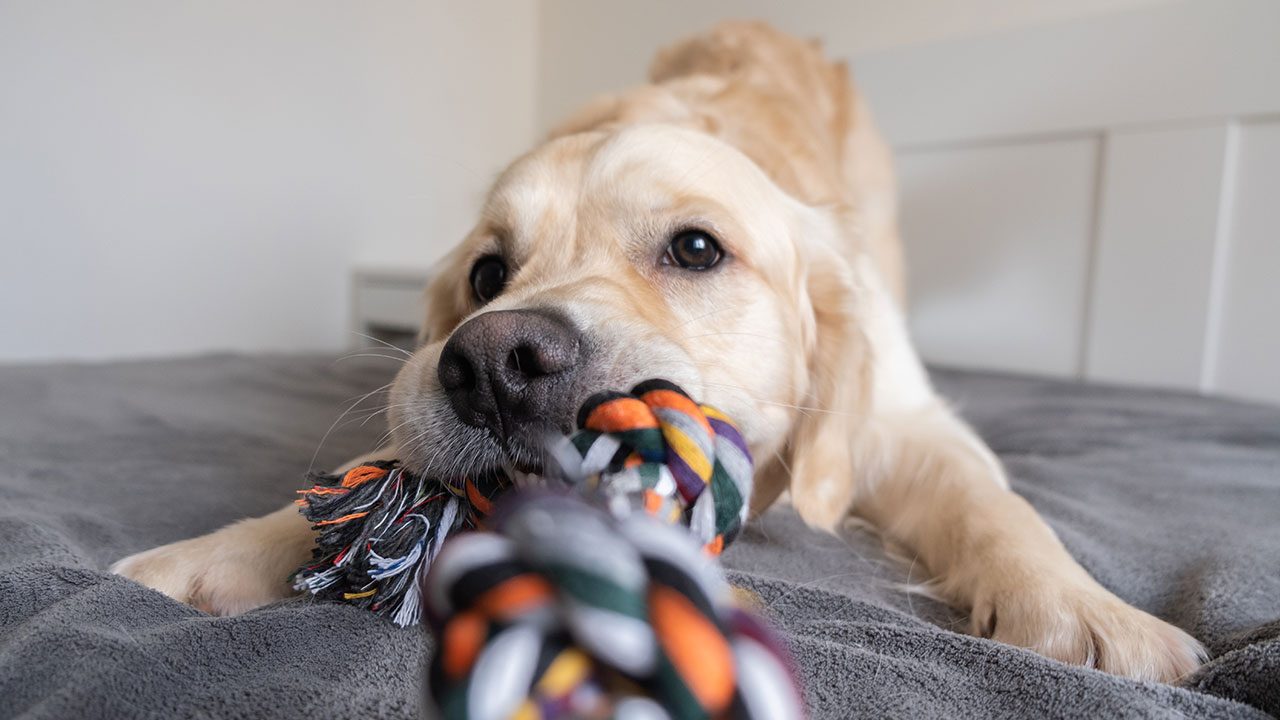


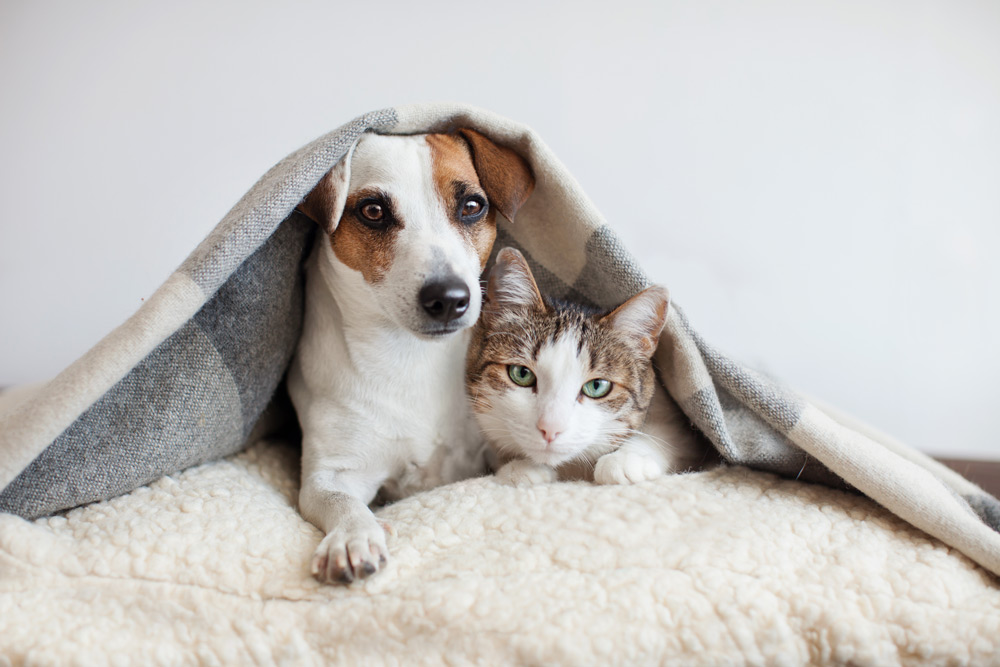
 Go To United States
Go To United States Austria
Austria Belgium
Belgium Czech Republic
Czech Republic Denmark
Denmark Europe
Europe Finland
Finland France
France Germany
Germany Greece
Greece Hungary
Hungary Ireland
Ireland Israel
Israel Italy
Italy Netherlands
Netherlands Norway
Norway Poland
Poland Portugal
Portugal Romania
Romania Saudi Arabia
Saudi Arabia Slovakia
Slovakia South Africa
South Africa Spain
Spain Sweden
Sweden Switzerland
Switzerland Turkey
Turkey United Kingdom
United Kingdom